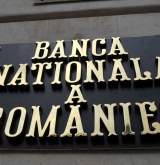“Soon after the Government configuration is established, Romanian politicians will have to take a set of measures to supply the liquidity pools in financial market and to provide confidence in financial institutions. I believe a governmental plan of 10 billion euros aid for banks in Romania is more than enough”, said Herbert Stepic.
He added that politicians in Romania, together with the central bank must take the same measures to stimulate the economy, following the example of the developed countries.
According to Stepic, if the funds could not be extracted from the currency reserves, European Union would help the newly-accessed member by any means possible, but it would need all the support from the new government.
What do insiders think about the rescue plan?
Bankers polled by Wall-Street think there are required certain measures to support the national economy, however, they said, the banking system is solid enough and the 10 billion euros rescue plan of the Romanian government will be necessary to support lenders in the event of poorer macroeconomic conditions.
“The banking sector is stable, trusted and doesn't need rescue, if the real economy will not substantially deteriorate, meaning huge unemployment and corporate failures”, Laszlo Diosi, OTP Bank Romania’s CEO told Wall-Street.
He added that all bankers would welcome a lower mandatory reserve rate, reminding that the high level of FX reserves had helped stabilizing the currency and it still plays a vital role in the stability of the economy.
“The too high growth in lending caused unjustified consumption and put a high inflational pressure on te economy, which was not healthy. I agree, that there must be more available liquidity on the market, from government or European sources, in order to provide investment and working capital possibilities, especially for the IMM sector, and to help access EU funds”, said Diosi, adding that the macroeconomy was stable enough to start infrastructural development programs.
“Honestly, I don't know any banks in trouble. The Romanian financial authorities, based on the bad experiences dated from 1999 have established a system, which guarantees, that banks cannot fail here. The reserves also play a huge role in this. On the other hand, if we are only talking about simple losses, as a Romanian taxpayer, I don't support any 'bank saving' from public funds. In case of normal business losses it is the task of the shareholders”, OTP Bank Romania representative explained.
“I have been supporting the idea of closing a stand-by agreement with IMF for a month. Moreover, we still have the reserves. Lenders have their own reserves, that NBR must give, in order to back them up in the event of a serious ‘liquidity drought’”, Bogdan Baltazar, financial consultant told Wall-Street.
Diosi mentioned that the present control and oversight guaranteed that there would be no banking failures in Romania.
“We think that the real hard times for the financial sector will last until middle of next year, than the situation will start to slowly improve on the financial market. In the real economy and in the consumption the problems may last for 1-2 years”, he concluded.
Citeste si:
Calculator Salariu: Află câți bani primești în mână în funcție de salariul brut »
Te-ar putea interesa și:


















































































![HR [PLAY] Tech Workout - 11...](https://www.wall-street.ro/image_thumbs/thumbs/973/973fe0a3888d417feff63de42e814180-260x260-00-65.jpg?v=1714194691)









